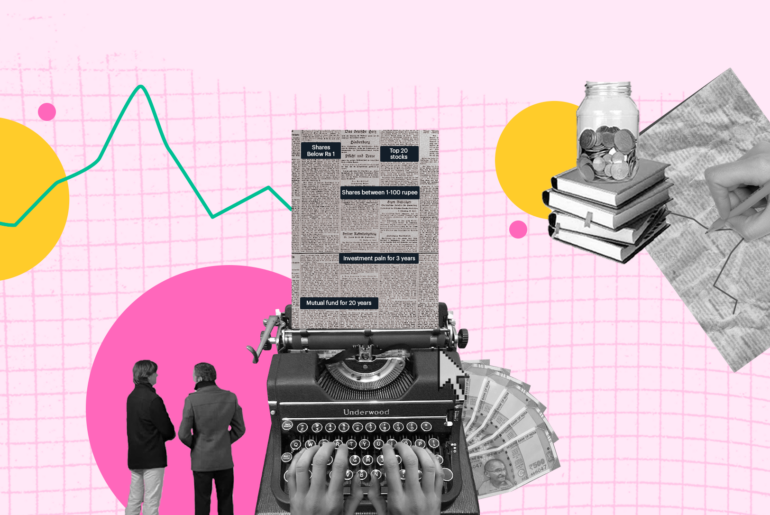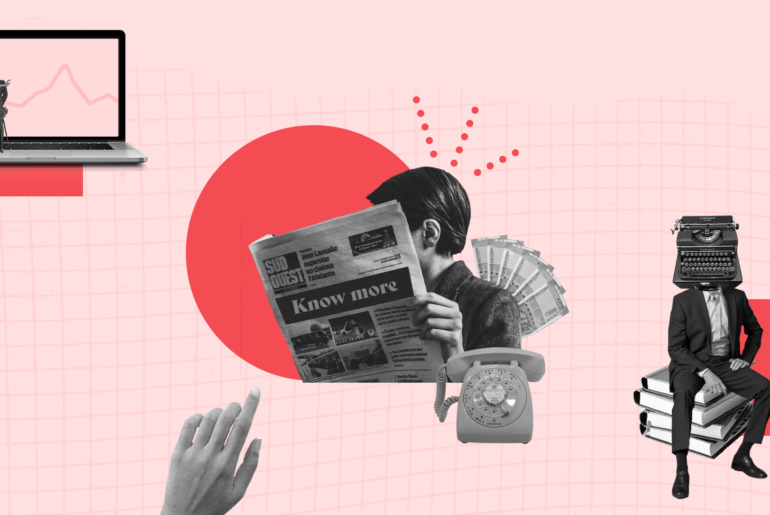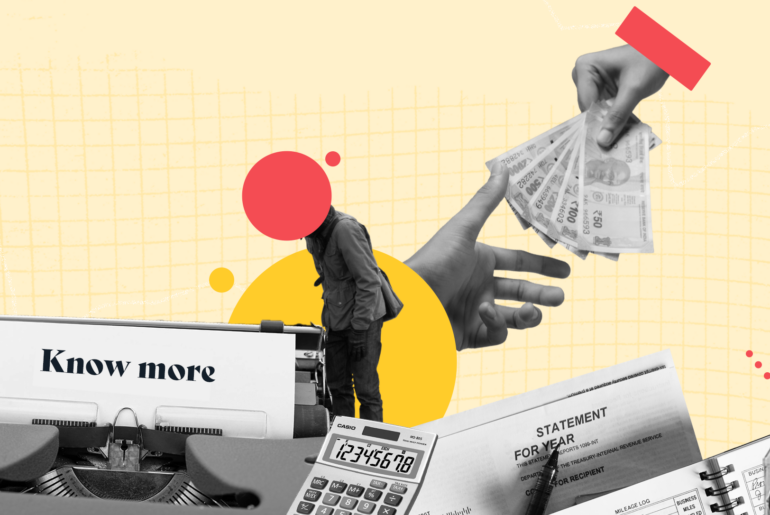A recession is a major decline in economic activity, lasting more than a few quarters. The recession period is considered a temporary phase with declining trade activities, falling employment levels, and reduced industrial output. Let’s explore this in more detail.
What is a recession?
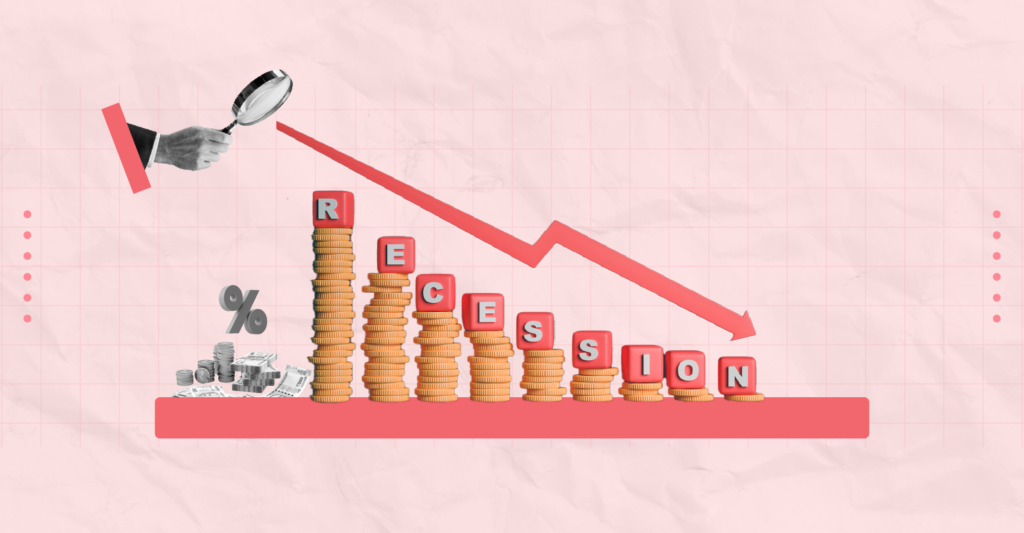
A recession is a period of economic contraction indicated by a reduction in the gross domestic product (GDP), increasing unemployment, a decline in real income, a reduction in consumer spending, and stagnation of retail sales and industrial production.
Technically, two consecutive quarters of negative GDP is described as a recession period. The time period and early signs of a global recession are not clearly defined.
Return on equity: Highlights
- A recession is a considerable, widespread, and prolonged decline in economic activity, which can last for a few months or more.
- A recession starts right after the economy reaches a peak of activity and concludes as the economy reaches its trough.
- Economists believe the financial crash and global 2008 recession to be the worst economic disaster since the Great Depression from 1929 to 1939.
What causes a recession?
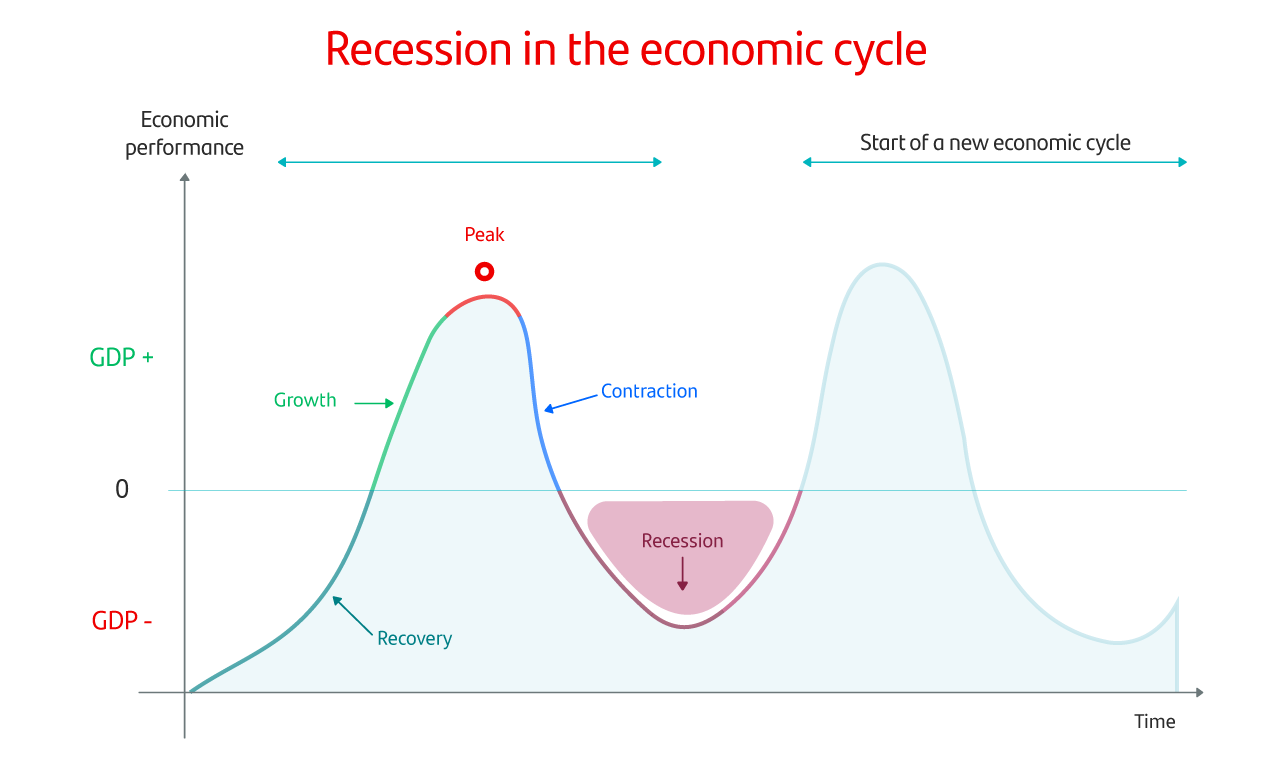
Economic recessions are caused due to a loss of business and consumer confidence.
With receding confidence, the demand declines. Theoretically, a recession is a tipping point in the business cycle when the economic growth peaks, converses, and becomes an economic contraction.
A significant decline in GDP growth is often considered a major cause of a recession, but it’s also a warning signal that a recession has probably already been underway. There are many interconnected combinations of factors throughout the economy, including:
- Economic shocks
An unanticipated event leads to widespread economic disruption, like a natural disaster, terrorist attack, or the recent COVID-19 outbreak.
- Loss of consumer confidence
The moment consumers become wary of the state of the economy, they reduce their spending and try and save as much as possible. This directly impacts the entire economy, which eventually slows down.
- Deflation
This happens when the prices of products and assets fall due to a large drop in demand. When demand falls, the prices, too, fall as sellers try to entice buyers. Consumers perceive this as a downward trend and wait until the prices drop even further, thereby reducing demand. This chain of intentional activities reduces economic activity and boosts unemployment.
- High-interest rates
When interest rates increase, consumers become hesitant to borrow money. This also means that they are less likely to spend, particularly on major expenses like cars or houses. In such times, companies also reduce their expenses and expansion plans as the cost of financing is too high.
- Stock market crash
The loss of confidence in investing can lead to a subsequent bear market, which can drain capital out of business.
- Asset bubble
An asset bubble emerges when the prices of investments like gold, housing, or stocks inflate beyond their sustainable value. The occurrence of the bubble itself signals a recession.
Types of recession

There are different types of recessions; let’s learn what they are!
- Boom and bust recession
The boom and bust cycle is the alternating fluctuations in an economy in which there are insistent expansion and contraction of the economy. This type of recession is often short-lived and can be averted by keeping growth close to the long-run trend rate and inflation low. An example of a boom and bust recession would be the 1973 recession in the UK, the post-Barber boom of 1972 caused by the oil price shock.
- Balance sheet recession
This type of recession occurs when firms and banks notice a significant decline in their balance sheets owing to dropping asset prices and bad loans. Due to huge losses, they restrict lending, which causes a drop in investment spending and economic growth. A balance sheet recession can last long and be avoided by controlling a credit and asset bubble. The right example would be the 2008-09 recession when bank losses led to a drop in liquidity, and banks found themselves amid a severe shortage of cash. Combined with a major collapse in confidence, the economy spiralled into recession, even though interest rates were being cut to zero.
- Depression
Depression is a deep and prolonged recession, where the output drops considerably and rates of unemployment rise beyond leaps and bounds. A balance sheet recession is likely to cause depression since bank losses and falling asset prices leave a long-lasting effect on economic recovery. An example would be the Great Depression that occurred in 1930.
You may like our article on ‘Liquidation’. To know more, visit the Tickertape blog.
What are the main indicators of a recession?
Some of the main indicators to look out for in recognising a recessionary phase are:
- Dropping GDP
- Economic contraction
- Drop in real income
- Higher unemployment
- A decline in industrial production
- Drop in wholesale/retail sales
- Falling interest rates
- Rises in defaults, bankruptcies, and consumer confidence
- Falling asset prices, like the cost of homes and the crash of the stock market
Can a recession be predicted?
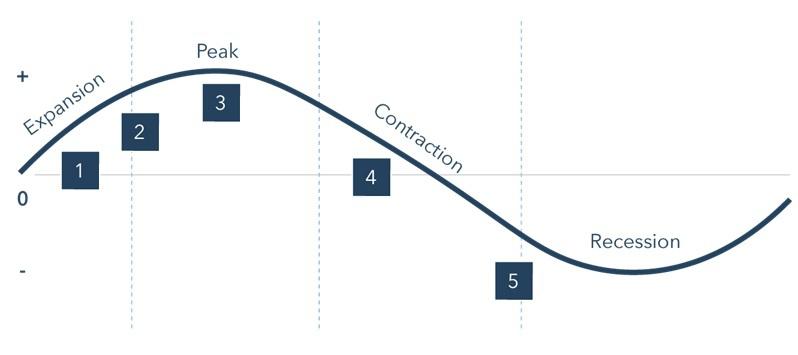
Recessions aren’t entirely predictable; however, a few warning signs can help economists predict that a recession may be around the corner.
Important signs of a looming recession can be a drop in manufacturing jobs, falling home prices, a lack of new small businesses, and a contraction in the stock market, besides the above-mentioned indicators.
Recession vs depression
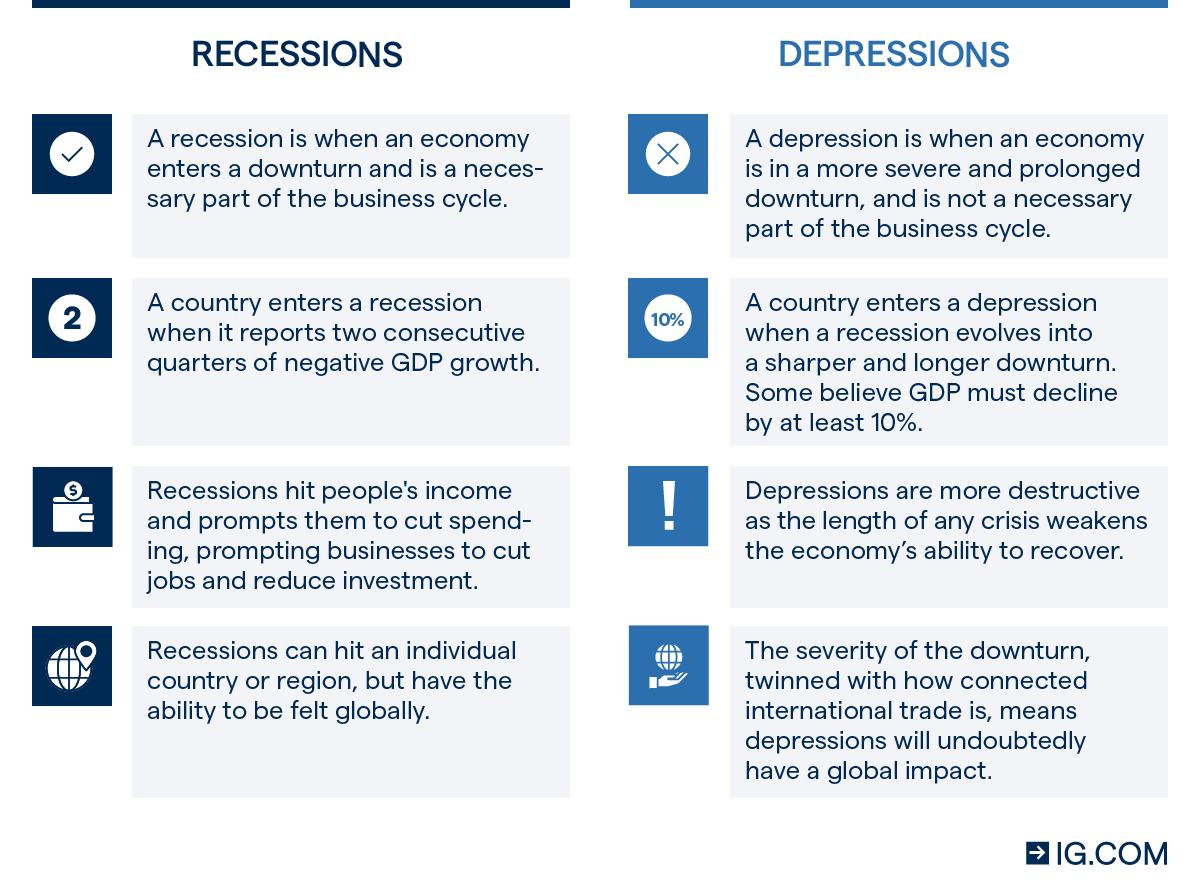
Depression is a more critical form of recession. The period of depression is typically accompanied by higher rates of unemployment and a decline in GDP.
Moreover, increased globalisation signifies that a recession in a specific country can significantly impact the economies of other countries. For instance, the Great Recession triggered a massive financial meltdown in various economies.
How can a recession affect you?
You may lose your job or find it challenging to secure a promotion. Graduates and school pass-outs may struggle to find their first job. But the effect of recession is typically not felt similarly across society, and this could also give rise to inequalities and unfair treatment.
How to survive a recession and thrive afterwards?
- Build an emergency corpus
- Lower your expenses
- Have an additional source of income
- Diversify your investment portfolio
- Maintain your credit score
- Invest for the long-term
- Accelerate your debt payments
- Manage financial stress by approaching financial advisors and wealth managers
Conclusion
The most important thing to remember before and during a recession is that things will change, and phases of economic contraction are natural. They are unavoidable but temporary. The only thing to do is to recognise the warning signs of a recession so you can prepare yourselves when it strikes without prior notice.

